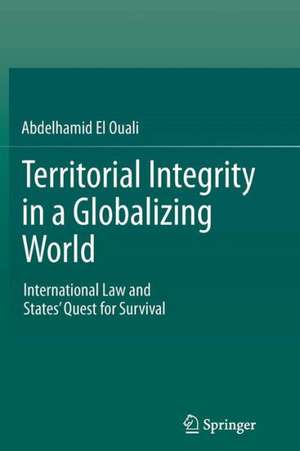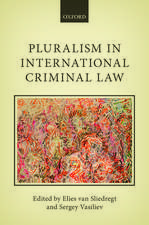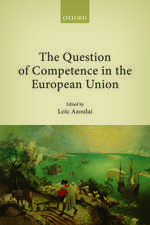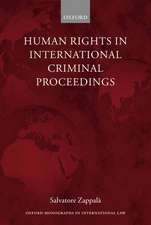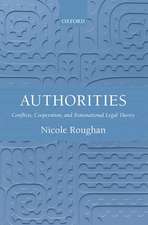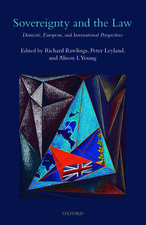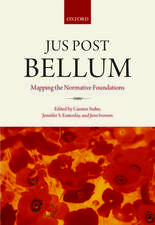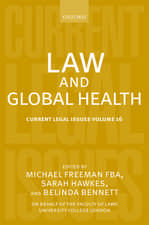Territorial Integrity in a Globalizing World: International Law and States’ Quest for Survival
Autor Abdelhamid El Oualien Limba Engleză Paperback – 16 apr 2014
| Toate formatele și edițiile | Preț | Express |
|---|---|---|
| Paperback (1) | 641.36 lei 6-8 săpt. | |
| Springer Berlin, Heidelberg – 16 apr 2014 | 641.36 lei 6-8 săpt. | |
| Hardback (1) | 647.69 lei 6-8 săpt. | |
| Springer Berlin, Heidelberg – 28 mar 2012 | 647.69 lei 6-8 săpt. |
Preț: 641.36 lei
Preț vechi: 754.54 lei
-15% Nou
Puncte Express: 962
Preț estimativ în valută:
122.83€ • 126.55$ • 102.90£
122.83€ • 126.55$ • 102.90£
Carte tipărită la comandă
Livrare economică 25 februarie-11 martie
Preluare comenzi: 021 569.72.76
Specificații
ISBN-13: 9783642447709
ISBN-10: 3642447708
Pagini: 412
Ilustrații: XX, 392 p.
Dimensiuni: 155 x 235 x 22 mm
Greutate: 0.58 kg
Ediția:2012
Editura: Springer Berlin, Heidelberg
Colecția Springer
Locul publicării:Berlin, Heidelberg, Germany
ISBN-10: 3642447708
Pagini: 412
Ilustrații: XX, 392 p.
Dimensiuni: 155 x 235 x 22 mm
Greutate: 0.58 kg
Ediția:2012
Editura: Springer Berlin, Heidelberg
Colecția Springer
Locul publicării:Berlin, Heidelberg, Germany
Public țintă
ResearchCuprins
Introduction.- Part One: Foundations of Territorial Integrity: Chapter 1. The State's Sovereign Right of Existence.- Chapter 2. State's Ability to Ensure its own Survival.- Part Two: The Protection of Territorial Integrity Against External Threat: Chapter 3. The Ambiguous Protection of State Territory.- Chapter 4. The Weakening of State's Territorial Sovereignty.- Part Three: The Protection of Territorial Integrity Against Internal Threat: Chapter 5. Self-determination Classical Paradigm: Disintegrating Peripheral States from Within.- Chapter 6. Self-determination Postmodern Paradigm: Preventing States' Disintegration.- Conclusion.
Textul de pe ultima copertă
This book offers a comprehensive, highly informative and interdisciplinary study on territorial integrity and the challenges globalization, self-determination and external interventions present. This study aims at not only to fill an epistemological gap in this regard, but also answer the question of whether International Law is adequately equipped to help states address these challenges. The author argues that the biggest threat that many states are confronted with today is their disintegration rather than their obsolescence, and that International Law has not often been able to prevent that eventuality. In fact, states, when they were not destroyed by war, managed to survive, thanks to the flexibility of territoriality, i.e. their ability to adjust to difficult situations as they arose. It is this understanding of adaptation that urges an increasing number of states today to revive territorial autonomy and restore an original understanding of self-determination in which democracy is a pivotal factor in establishing congruence between the states and their nations. While this move is endorsed by International Law, it is not the case for globalization; for their own sake, proponents of globalization should recognize that the states are irreplaceable as long as they remain the sole providers of protection for their peoples.
Caracteristici
Includes supplementary material: sn.pub/extras
